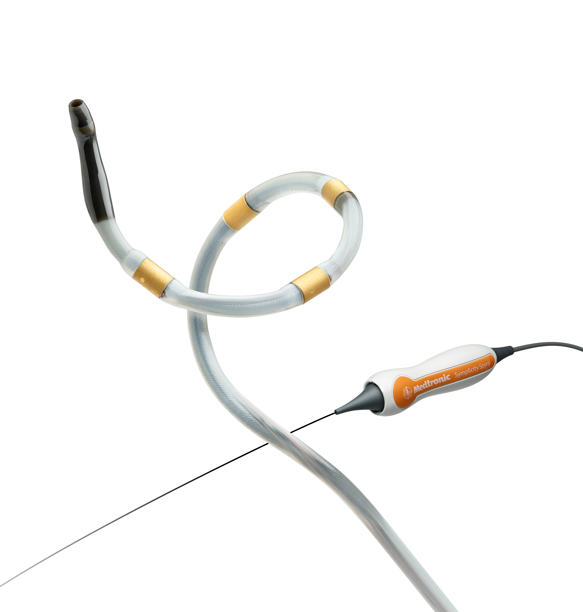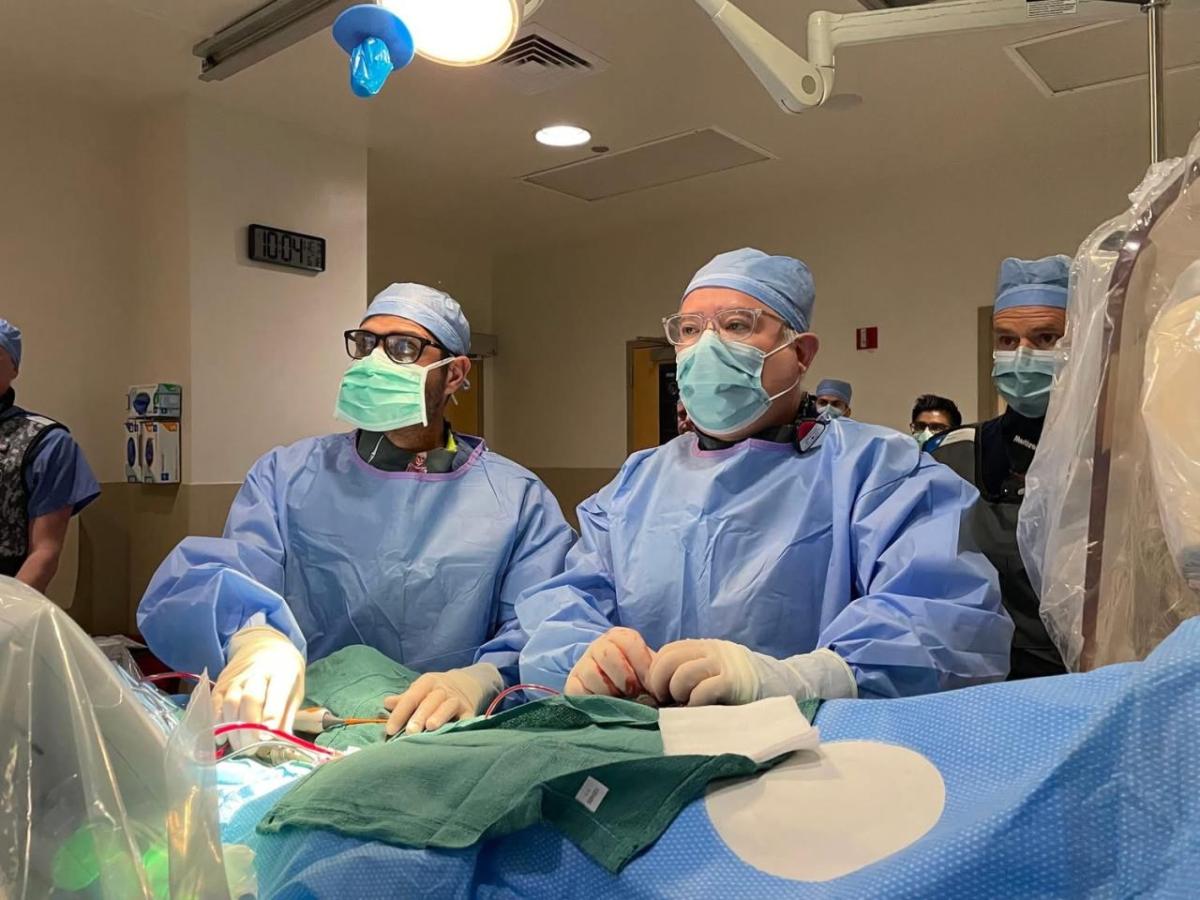Medicare Now Covers Breakthrough Technology To Treat Uncontrolled High Blood Pressure
Decision means millions of Americans have access to the Medtronic Symplicity Spyral™ renal denervation system
Edwin Jimenez knows a thing or two about staying physically fit.
“I grew up on a farm-style ranch in California, and I helped the workers in the fields,” he remembered. “After that I spent 22 years in the Marines, where fitness is required. I’ve always been in good shape.”
Even after retiring from the military and moving to a civil service career, you could find him at the gym after work. So it took him by surprise when a routine checkup revealed a problem.
“My high blood pressure came on kind of quickly,” he said. “The doctors put me on medication, and I thought that would take care of it.”
But it didn’t.
Jimenez’s blood pressure remained stubbornly high. Doctors tried combinations and different doses of medication for years, but any improvement in his blood pressure proved temporary.
As time passed, side effects from the drugs and his rising blood pressure took a toll on his health. The muscular ex-Marine who worked the treadmill and lifted weights, even in retirement, now didn’t have the energy to get off the couch.
“Even with medication, my blood pressure at times was as high as 185 over 99. It was out of control. I was regularly lightheaded and had no energy. So they sent me to Dr. Kaynak.”
Medicare now covers renal denervation
Dr. Evren Kaynak is the Cardiovascular Services Medical Director at Onvida Health in Yuma, Arizona. He recommended a minimally invasive medical procedure called renal denervation (RDN) to treat Jimenez’s hypertension, using the Symplicity Spyral renal denervation system from Medtronic.
“For decades, the only ways to treat high blood pressure involved diet and lifestyle changes and medication,” said Dr. Kaynak. “But RDN is giving us another option. It has opened a new door to treat hypertension. The potential to help people is vast.”
With the Symplicity blood pressure procedure, doctors use precisely tuned radiofrequency energy to ablate nerves in the kidneys, which calm the excessive activity of the nerves near the kidney.1 That in turn helps lower blood pressure for many patients. The Symplicity blood pressure procedure is a one-time event, leaves no permanent implant behind, and studies have found it safe and effective in lowering blood pressure, especially for patients who can’t control it with medication alone.2,3
Dr. Kanyak performed Arizona’s first Symplicity blood pressure procedure in September, 2024 — Edwin Jimenez was the patient.
“When word got out, people began calling us from all around the western United States,” said Dr. Kaynak. “They wanted to know more about the procedure. And then their second question was often ‘does my insurance cover it?’”
Jimenez’s military benefits covered the cost of his treatment. But since the U.S. Food and Drug Administration (FDA) approved the Medtronic Symplicity Spyral RDN system in late 2023, Medicare and most insurance companies have not established coverage. People with uncontrolled hypertension interested in RDN often had to be approved on a case-by-case basis. That changed on Oct. 28, 2025, when the Centers for Medicare and Medicaid Services (CMS) announced that it would cover Symplicity.
“This decision means millions of people will have access to a breakthrough technology that treats one of the most significant health problems in the world today—uncontrolled high blood pressure,” said Dr. Jason Fontana, Vice President of Global Marketing in the Coronary and Renal Denervation Operating Unit at Medtronic. “The potential to improve many, many more lives is really incredible, and it’s exciting to be moving ahead.”
Under the CMS coverage policy, patients experiencing a blood pressure higher than 140 systolic and 90 diastolic and have been on a drug therapy and lifestyle modification regimen for at least six weeks could qualify for Medicare coverage of RDN.
Wide impact
Medicare is health insurance coverage for Americans 65 and older. It’s the largest public health insurer in the U.S. and covers nearly 70 million Americans (roughly 1 in 5). Dr. Kaynak expects an influx of patients in the wake of the Medicare decision to cover the Symplicity procedure.
“We’re already working on pathways to identify patients as quickly as possible who could benefit,” said Dr. Kaynak. “And we’re reaching out to local providers to make sure they’re aware of the procedure. We expect this decision from Medicare to help a lot more people receive the benefits of RDN. Just like it helped Edwin.”
It’s been a year since Edwin Jimenez underwent RDN. After years of fighting his high blood pressure, it’s now under control.*
“I feel great,” Jimenez added. “I have energy again. I’m more productive. My wife says I’m not as grumpy. I’ve got my life back.”
*Results may vary. Adverse events may include pain and bruising. Talk to your doctor to see if the Symplicity Spyral™ procedure is right for you. Additional safety information can be found at BeyondHBP.com.
1 Coates P, Tunev S, Trudel J, Hettrick DA. Time, temperature, power, and impedance considerations for radiofrequency catheter renal denervation. Cardiovasc Revasc Med. September 2022;42:171–177.
2 Kandzari DE, Townsend RR, Kario K, et al. Safety and Efficacy of Renal Denervation in Patients Taking Antihypertensive Medications. J Am Coll Cardiol. November 7, 2023;82(19):1809–1823.
3 Böhm M, Kario K, Kandzari DE, et al. Efficacy of catheter-based renal denervation in the absence of antihypertensive medications (SPYRAL HTN-OFF MED Pivotal): a multicentre, randomized, sham-controlled trial. Lancet. May 2, 2020;395(10234):1444-1451.



